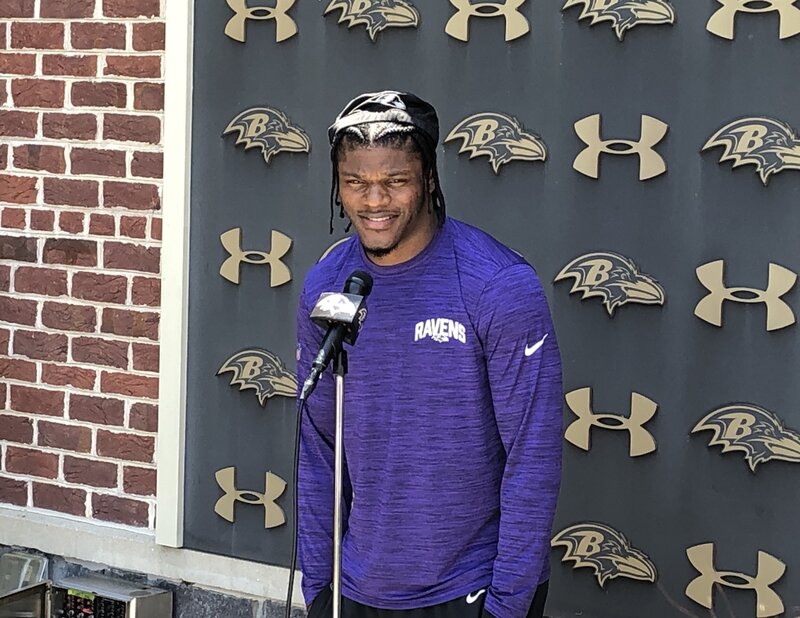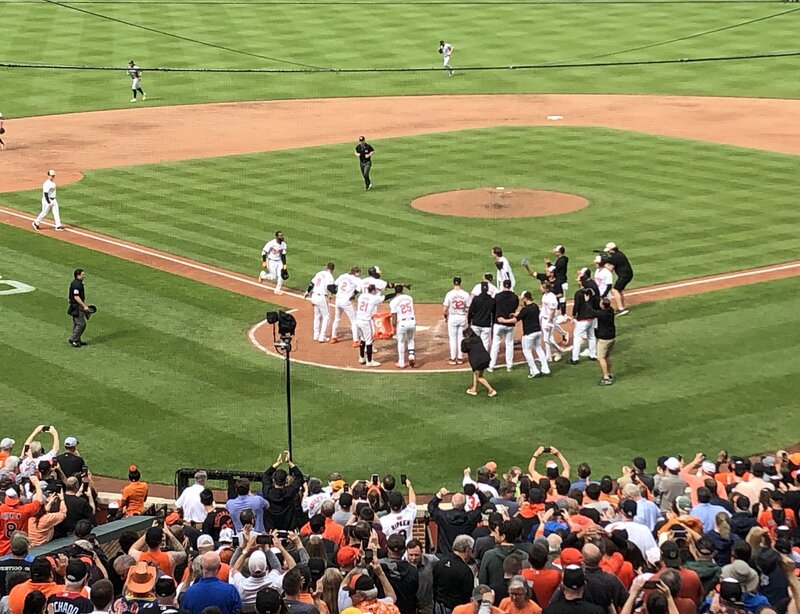society’s workforce. Given the investment, Angelos demanded that doctors on his team be very stringent and report all possibilities of signing damaged ballplayers. The mistakes were too costly, the risks too high for Angelos’ conservative tastes financially.
On Nov. 23, Jordan signed with the Atlanta Braves for 5 years and $40 million, allowing him to play for both Georgia pro teams. On Nov. 25, the Yankees signed Bernie Williams to a 7-year, $89.7 million deal after their star outfielder turned down a richer, $91 million offer from the Boston Red Sox to solidify his future in pinstripes.
The Orioles, seemingly always slow to act, were still negotiating with Rafael Palmeiro and B.J. Surhoff and teams were throwing big numbers at all of the remaining free agents in an attempt to improve and chase the Yankees, who were clearly the class of the sport.
On Dec. 1, Angelos walked into a meeting with new general manager Frank Wren and inquired as to his GM’s position on signing the ever-maligned Albert Belle.
It was later reported by Dave Sheinin of The Washington Post like this:
The Baltimore Orioles’ top executives gathered around new general manager Frank Wren to evaluate potential free agent targets when, according to people present at the time, they were interrupted by owner Peter Angelos, who asked: “What do you guys think about Albert Belle?”
Belle, the powerful but surly free agent slugger, had not been among the targets Wren’s brain trust had discussed. Wren told Angelos that Belle had pluses (his production) and minuses (his personality), but Angelos waved him off. “What if I told you we already got him?” Angelos asked, and it became clear what had occurred.
Wren had told the media for two weeks that the Orioles were not interested in Belle or his legendary droves of baggage. Of course, Wren never thought his owner would begin a private negotiation to add Belle to the Orioles without his knowledge.
Simply put, Belle was baseball’s most miserable man and his reputation was probably kinder than the reality of managing his wildly unpredictable personality and state of mind. He was the most feared hitter in Major League Baseball, coming off another incredible year of offensive production. In 1998, he hit .328 with 49 homers and 152 RBI. But Belle was also a complete powder keg of a human being – on and off the field. He had been punished for throwing a baseball into the chest of a taunting fan at Cleveland Stadium in 1991. He charged the mound against Royals pitcher Neal Heaton in 1992, then again in 1993 for another Royals hurler, Hipolito Pichardo. There was also a profanity-laced tirade directed at female sportscaster Hannah Storm in 1995 in the Cleveland dugout before the American League Division Series. Later that month, after a World Series loss, Belle chased down some neighborhood teenaged trick-or-treaters who threw eggs at his house. In 1996, he was involved in a bat-corking incident in Cleveland that involved unprecedented espionage and branded him a cheater in addition to being a lout. Belle’ legendary mood swings and penchant for threats and violence was disturbing to everyone in baseball, including MLB commissioner Bud Selig.
Despite his production in 1997 and 1998, the Chicago White Sox were privately delighted that Belle outperformed his contract and opted to leave. The club no longer wanted its best player.
But once again, fear and loathing of the dreaded New York Yankees led Angelos to the brink. Angelos signed Belle to a 5-year, $65 million contract on Dec. 1, 1998 – the largest contract in the history of the franchise – and presented him to Wren just six weeks after the new GM was told he’d be in charge of all baseball-related decisions.
Meet the new boss – same as the old boss.
On Dec. 1, the same day Albert Belle became a member of the Orioles, former second baseman and future





























